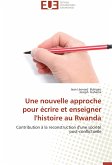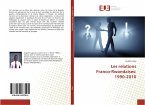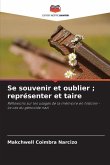The history of societies has always been the history of the violent events that have marked them. In this way, the 20th century can be read through the First and Second World Wars, and less visibly through colonization and the wars of independence. From this point of view, Africa's recent history is the expression of several decades of violence, of which the Rwandan genocide is the most extreme. For Colette Breackman, "The genocide in Rwanda represents, not only in Central Africa, but for humanity as a whole, one of the defining events of the late twentieth century". For Rwanda, which is at the heart of our reflection, violence is one of the founding principles of its political, social and cultural history. Writing is thus a trace, a memory of history. However, history seems to be opposed to literary writing. For it is generally said that literary works contain little that is opposed to reality, but rather the imaginary, or even simulation. This approach to the literary text is now somewhat shaken, if we include witnesses.








